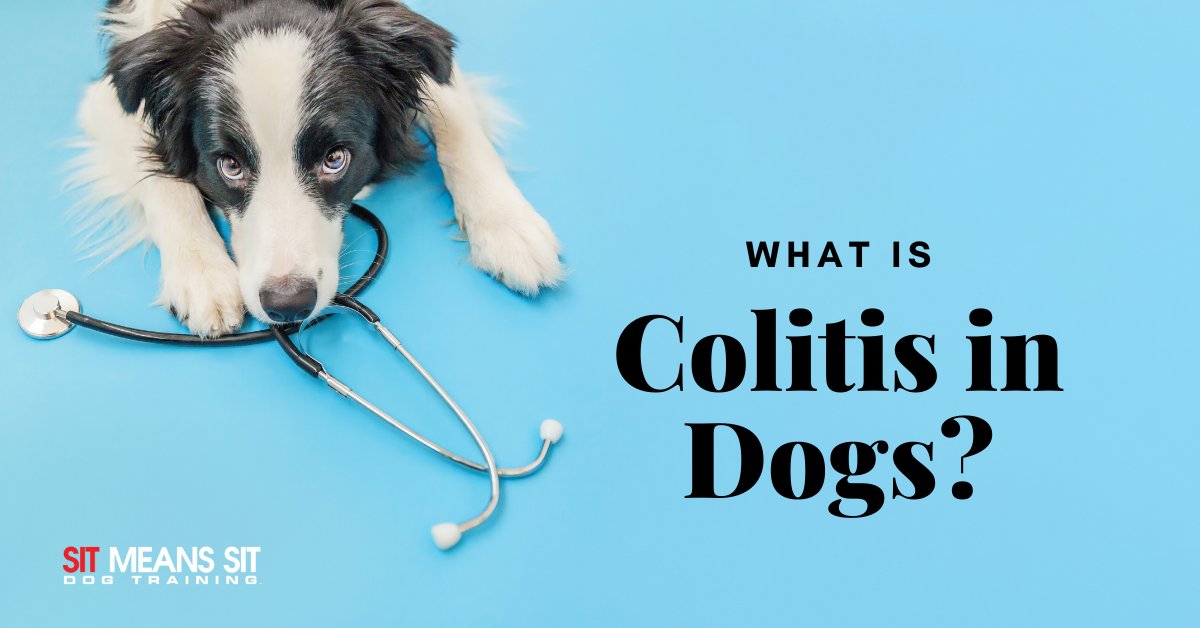
What is Colitis in Dogs?
Your dog’s health is one of the most important things to you. So, when they’re sick, it’s probably a scary feeling, especially if you don’t know what exactly the vet is talking about. If your dog has been diagnosed with colitis you may be thinking “what’s that?” Here’s a quick guide to read up on what exactly canine colitis is and how it affects your pooch.
What Is Colitis?
Colitis sounds complicated, but it’s actually just the inflammation of the colon. Colitis is also commonly referred to as large bowel diarrhea, likely because of its location in the large interesting (colon). Colitis is used to describe loose stool or diarrhea that is associated with an inflamed colon.
Colitis Causes
Stress is one of the leading causes of colitis in canines. But, colitis can be caused by a number of different things such as parasites (i.e. whipworms), infections (i.e. E. coli), allergic colitis, trauma, and primary inflammatory bowel disease (i.e. granulomatous). Colitis may also be caused by close contact with another infected animal, constant exposure to a wet environment (like a play pool with old water), or ingesting contaminated food.
Colitis Clinical Symptoms
Some illnesses can be hard to spot in dogs, but colitis is fairly simple as you are mainly looking for issues with your canine’s feces. The inflamed colon results in a reduction of water absorption, which decreases a dog’s ability to use its large intestine to store feces as usual. Dogs experiencing colitis may show signs of:
- Semi-formed or liquid feces
- Straining to defecate or after defecation
- Bloody stool
- Presence of mucus or fat in chronic cases
- Frequent defecation or sudden urge
- Vomiting or weight loss in rare cases
Contact your veterinarian immediately if you observe any of these symptoms in your dog.
Diagnosing Canine Colitis
Colitis is most typically diagnosed by a few different factors like clinical symptoms, medical history, rectal exam, microscopic evaluation of a feces sample, blood test(s), and cytology. Most common colitis forms can be diagnosed with a combination of tests, but some rare cases of colitis may require additional testing such as a colposcopy, x-ray, ultrasound, or fecal cultures. These tests may sound a little scary and unnecessary, but they are essential in order to rule out more serious conditions or illnesses like colonic tumors or cecal inversion.
Prognosis & Treatment
Once your vet finds out the specific cause of your pup’s colitis, then their treatment will be determined. Treatment for non-specific or general colitis commonly includes:
- Fasting 24-48 hours
- Feeding a low residue diet (given by vet recommendation)
- Increasing fiber intake (or lower fiber in some special cases)
- Adding fermentable fiber foods (like beet pulp)
- Antimicrobial, Immunosuppressive, or anti-inflammatory drugs (special cases)
Most dogs diagnosed with colitis are back from recovery 3-5 after treatment and stay healthy! If your dog’s case is more severe, the vet may have to continue to monitor them with tests and be put on a long-term diet (for chronic cases)
If your dog has colitis, don’t fret! It’s not the end of the world and there’s a good chance they’ll be back to their normal routine and enthusiastic self in no time. Just remember to get them the care they need and have them take it easy for at least a week.
